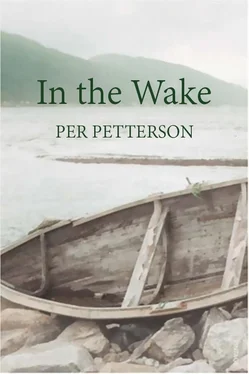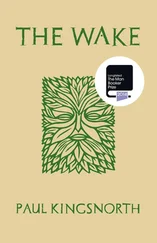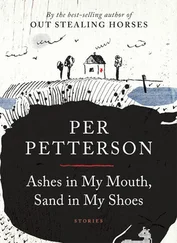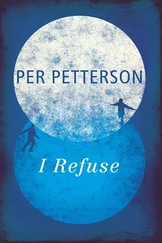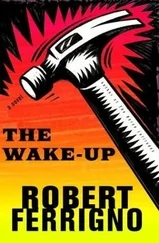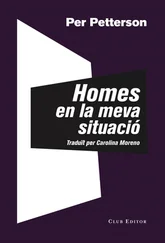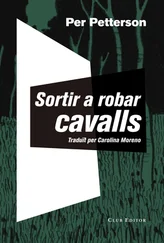And then, on the third day, just before nightfall, the low sun broke through the steel-grey layer of clouds and sent a ray of light slanting down through the trees on to a solitary hut, and those among them who were Baptists saw it as a sign and went in. There he lay on a bunk sleeping like one dead, with the picture of the Danish fiancée clutched in one hand. He had not eaten for four days, his clothes were in rags, he had bruises on his face from his own fists, and they woke him, and he did not know where he was or what had happened.
“Has the referee counted to ten,” he said. The men standing in the hut stroked their faces with sopping wet hands, and they looked at each other, fearing the worst, but he did recover, although he was never the same again.
Some months later he received a letter telling him he had a child in Denmark, in Jutland, with a lady he had met in a café near the factory and had spent a short time with the previous autumn, and who then just vanished. And it was not that he did not remember her, but it was more like a dream, for he had taken her to the cottage at Bunnefjord one night when the snow drifted past the walls and blew across the water, but inside it was warm and the night was warm, and when he woke up next morning she had gone and the snow had gone, and he did not see her again. Then his family kept on until she came alone on the Oslo boat, and after just a few days they went to the tabernacle together, and when they came out again they stopped on the pavement in the group of brothers and sisters, and he laughed and said: “Nailed to a cross on earth.”
I am not sure now what Aunt Solgunn has told me and what I have made up myself, but what I think as I lie in the dark under the duvet looking up at the ceiling is that I would never have believed he was capable of it: passions, deep despair. All that. And would it have made any difference if it was something I had known while he lived?
“Without a doubt,” I say aloud, “it would have made a great difference,” and I know that is true, and nothing I can do or anything I can say will make time stop and go into reverse and make that difference less. And then the doorbell rings. I lie there listening. It does not ring again, but I am sure someone is standing outside waiting. I cannot ignore it now I have heard it, and maybe it is the Kurd on the third floor, perhaps he needs help again, perhaps the door to the stairwell is locked and he is standing in the rain without a key. I get up and put my trousers on and go out into the hall and open the door. Mrs Grinde is standing there. Her hair is wet. Her son is in her arms, swaddled in a woollen blanket. He is asleep with his head falling backwards. There are shining drops on his face. He does not look so bossy now.
“Hi,” I say. She makes no reply. I stand there like an idiot, looking at her, and she bites her lip and gazes past me with the heavy boy in her arms, and I say:
“Do you want me to hold him for a bit?”
She shakes her head. Then I open the door wide and say:
“Come in, then.”
Without hesitation, she walks past me, and that almost makes me scared. I do not know whether I can handle this. It is so long since anyone I have known in that way was here, two years in fact, that I do not remember what the form is, and with the boy it seems strangely intimate, almost like family. I do not know if I want family any more. It is too risky. I close the door, and follow her into the living room and say: “You can put him on the sofa.”
And she does, she lays him down on the sofa very carefully with the woollen blanket tightly round his body, and he sleeps just as soundly. Slowly, she straightens her back as she takes off her coat and places it over the back of a chair, and then she turns towards me and runs her hand through her hair with her head on one side and says:
“I couldn’t leave him alone.”
“Of course not,” I say.
“Why didn’t you answer the phone?” she says. She is not wearing her glasses, but she does not peer either. How did she know I was here and could pick up the telephone?
“Do you wear contact lenses?” I say, and then she blushes quite visibly although the light is not on, and she faintly nods, and I say:
“I don’t know. I do not know why I did not answer the phone. So many people call. It keeps on ringing.” That is not really true, but it is true that I don’t know why.
“You were quite visible though, standing there, in the light from the pathway,” she says and smiles for the first time and now I am the one to blush. How many other people saw me? The naked man on stairwell F. She takes the few steps towards me, lifts her hand and places it lightly on my chest.
“You looked good,” she says, and then leans forward and lays her head just as lightly over her hand and says:
“I am taking a chance here.” Her hair tickles my chest and her mouth tickles, I am well aware I am standing here in my trousers and nothing else, and it is perfectly quiet and dark around us. Only the boy breathing on the sofa, and I cautiously place an arm round her shoulders, not committing myself.
“I know,” I say. “You are brave.”
“You were brave too, last night.”
“That was different. I was sick then, and cold and bombed out of my mind. Maybe I still am. I don’t know. Last night is a long time off.”
“Is it?” she says.
“Yes,” I say. “Just about everything has happened since then.” I feel her hand grow stiff, she starts to push, and then I tighten my grasp of her shoulder and hold her fast, and say:
“Why did you look at your watch, out there by the hospital?”
She grows softer in my arm and laughs deep down in her throat.
“That was so silly. I saw you standing there in front of the main entrance, and then I thought, is there time to go up to him for a moment, I just wanted a look at your face, and then, instinctively, I glanced at my watch. I didn’t even see what time it was. It was just daft, we had a man to save.”
“It was half past four,” I say. “How is the man doing?”
“He died on the way in. He’d had a collision in the fog on the motorway. His chest was crushed against the wheel.”
There is not much I can say to that, and I really do not feel like saying anything, so I just go on standing with my arm tightly round her shoulder, and it is a fine shoulder, and it fits me well, not being a tall man. Everything is almost perfect. I feel her relax with her cheek on my neck, and her breath tickling, and her hair too, and I stand waiting for the feeling that will push me on, for the ball is in my court now, I know the next step, and it is no more than right. But the feeling does not come. I do not know what is wrong. Perhaps it is the boy on the sofa.
“Why don’t you ask why I was at the hospital?” I say.
“Because I know. I found out,” she mumbles.
I see. She has found out, and now that she knows why I was at the hospital, she will give me the comforting hug. But she does not, she stands quietly without changing position, just breathes on my neck and she is not here to comfort me, but to get what she is entitled to, and I am all with her there, and we cannot go on like this for many more seconds before something happens. I do not know what to do. Then I suddenly remember the film about Zorba the Greek, the scene where Anthony Quinn bawls out the Englishman Alan Bates because he has committed the greatest sin a man can possibly commit. He had made a pass at the proud widow and succeeded, and perhaps she gave him a chance because he was different, but when it came to the crunch he had not the courage to go through that door she held open for him, and that stripped her bare and cost her her life.
I bend down slightly and put an arm round her back and the other behind her knees, and pick her up with a jerk. She clings to my neck, giggling.
Читать дальше
